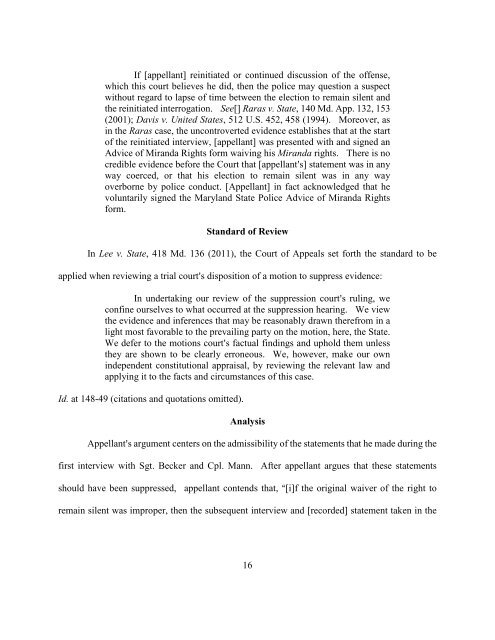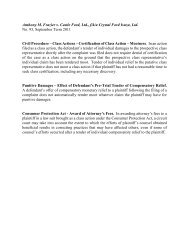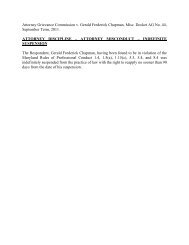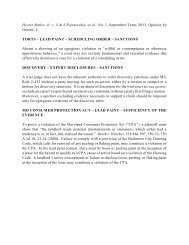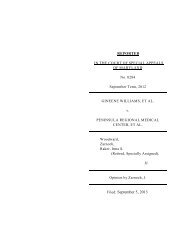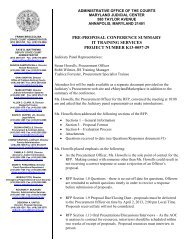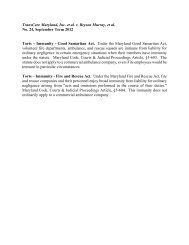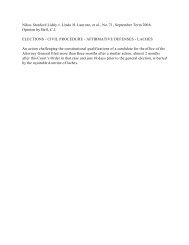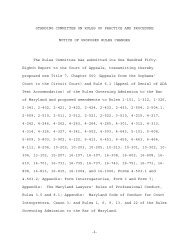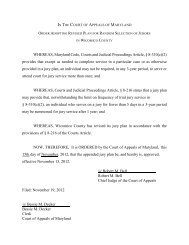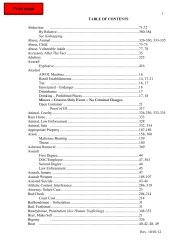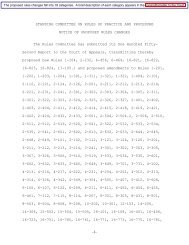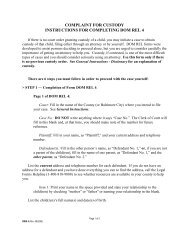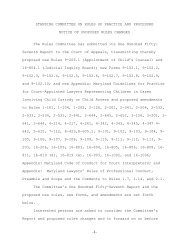2842/09 - Maryland Courts
2842/09 - Maryland Courts
2842/09 - Maryland Courts
You also want an ePaper? Increase the reach of your titles
YUMPU automatically turns print PDFs into web optimized ePapers that Google loves.
If [appellant] reinitiated or continued discussion of the offense,<br />
which this court believes he did, then the police may question a suspect<br />
without regard to lapse of time between the election to remain silent and<br />
the reinitiated interrogation. See[] Raras v. State, 140 Md. App. 132, 153<br />
(2001); Davis v. United States, 512 U.S. 452, 458 (1994). Moreover, as<br />
in the Raras case, the uncontroverted evidence establishes that at the start<br />
of the reinitiated interview, [appellant] was presented with and signed an<br />
Advice of Miranda Rights form waiving his Miranda rights. There is no<br />
credible evidence before the Court that [appellant=s] statement was in any<br />
way coerced, or that his election to remain silent was in any way<br />
overborne by police conduct. [Appellant] in fact acknowledged that he<br />
voluntarily signed the <strong>Maryland</strong> State Police Advice of Miranda Rights<br />
form.<br />
Standard of Review<br />
In Lee v. State, 418 Md. 136 (2011), the Court of Appeals set forth the standard to be<br />
applied when reviewing a trial court=s disposition of a motion to suppress evidence:<br />
In undertaking our review of the suppression court=s ruling, we<br />
confine ourselves to what occurred at the suppression hearing. We view<br />
the evidence and inferences that may be reasonably drawn therefrom in a<br />
light most favorable to the prevailing party on the motion, here, the State.<br />
We defer to the motions court=s factual findings and uphold them unless<br />
they are shown to be clearly erroneous. We, however, make our own<br />
independent constitutional appraisal, by reviewing the relevant law and<br />
applying it to the facts and circumstances of this case.<br />
Id. at 148-49 (citations and quotations omitted).<br />
Analysis<br />
Appellant=s argument centers on the admissibility of the statements that he made during the<br />
first interview with Sgt. Becker and Cpl. Mann. After appellant argues that these statements<br />
should have been suppressed, appellant contends that, A[i]f the original waiver of the right to<br />
remain silent was improper, then the subsequent interview and [recorded] statement taken in the<br />
16


